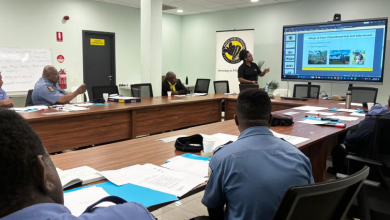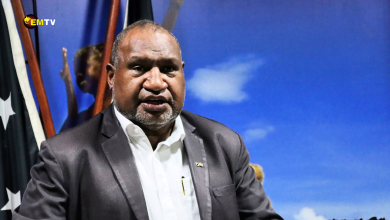TIPNG: ABUSE OF PROCESSES IN PARLIAMENT UNDERMINES PUBLIC CONFIDENCE AND FEEDS CORRUPTION
Pictured: TIPNG Board Chair, Peter Aitsi (File Footage)
Transparency International Papua New Guinea (TIPNG) has issued a statement reminding the government and all parliamentarians that they are ultimately accountable to the people of Papua New Guinea and that undermining democratic processes not only erodes public trust but also hinders the nation’s progress and development.
TIPNG Board Chair Peter Aitsi stated that the reported refusal of the Acting Speaker of Parliament to entertain a motion of no confidence against the Prime Minister, followed by the adjournment of Parliament until May of this year, raises serious questions about the adherence to democratic principles and further erodes public trust in our government institutions.
“The motion of no confidence is a fundamental tool within our parliamentary system, allowing elected representatives to hold the Executive accountable. Denying its consideration without due process is an affront to the democratic rights of both the opposition and the people they represent.” Mr. Aitsi said.
“It unfortunately perpetuates a culture of impunity and weakens the already fragile checks and balances within the government and fuels an environment rife to corrupt behaviour. Parliament needs to recommit itself to its role as being the House of the People and take on important matters such as the debate and adoption of the report by the Special Parliamentary Committee on General Elections so that meaningful electoral reforms can take place to restore integrity to our political processes,” he added.
Motions of no confidence are provided for under Section 145 of the Constitution and must be given in accordance with Parliamentary Standing Orders. Section 130 (4) of the Parliamentary Standing Orders states that a notice of motion of no confidence given under Section 145 of the Constitution is a private notice of motion and shall have precedence on Private Business day, which in practice has been Thursdays.
The Parliamentary Standing Orders in Sections 131 and 132 go on to state that on a receipt of a notice of motion under Section 130, the Clerk shall, at the first convenient opportunity, report the terms of the notice
of motion to the Parliament and further, that the notice shall be entered by the Clerk on the Notice Paper in the order in which they were reported to the Parliament.






